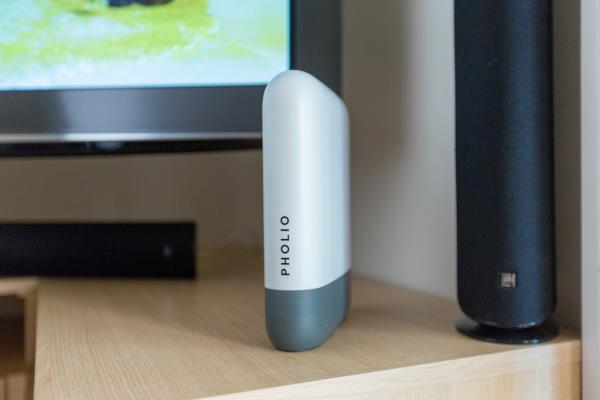03 November 2017
The basic device can manage collections of up to 140,000 images.
A London-based startup firm says it has condensed the power of cloud based visual search technology to the size of a book.
Developed in partnership with the University of Oxford, it’s claimed the Pholio device can safely store or enable access to a user’s photos and videos in one place, and allows an “incredible” level of search.
The company says that thanks to mobiles, more content is being created than ever before. According to estimates, it says a 1.2 trillion photographs will be taken this year, double the number taken four years ago.
But Pholio CEO Simon Randall warns that for every upload to the cloud or sub-folder created on a computer, users could well be adding hundreds of files over time.
“The chances are that many of these images and videos will sit for years collecting digital dust”, he says. “[But now], searching for special memories and discovering those you thought were lost, is now easier than ever before.”
According to its developers, the software inside the Pholio device automatically checks all images in the user’s collections against 20,000 in-built search terms, such as ‘birthday’ or ‘Christmas’ or ‘house renovation’. By keying a relevant search term into a browser on a connected TV screen, tablet, phone or laptop at home, its says users can quickly search for all sorts of images in their collections.
The software was ‘trained’ in the lab by being shown millions of pictures with a wide range of content. Pholio claims a custom set of deep learning algorithms has learnt how to create a unique summary of the contents of images so that the software can recognise and classify faces, objects and scenes that it has never seen before.
The company adds that Pholio has been trained to recognise 20,000 search terms which can be used fully offline. When the device is connected to the internet, owners can search for anything, with Pholio learning new search terms on the fly.
Randall says: “With the growing volume of data coming from imaging and connected devices in the home there is a critical need for local processing and control. [Pholio] will save cloud streaming costs, increase response speeds, and provide choices that don't require handing over control of your data.”
The basic Pholio device can manage collections of up to 140,000 images and is available from £199 for early orders.










